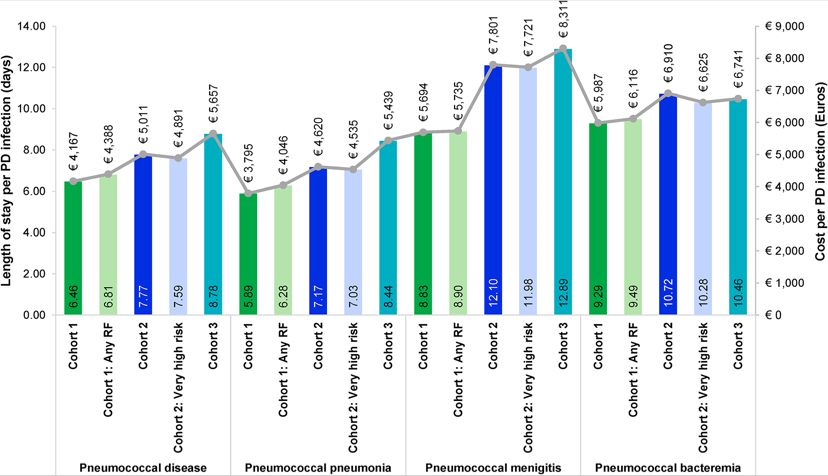Pneumococcal disease (PD) is a major cause of clinical and economic burden worldwide, yet the burden of PD in Swedish adults and its relationship with medical risk factors (MRFs) is largely unknown. In collaboration with MSD, Quantify Research’s Martina Aldvén estimated the burden of PD in the form of pneumonia, meningitis, and septicemia diagnosed in the hospital setting amongst Swedish adults stratified into three cohorts based on age and the presence of MRFs.
This study enriches the body of knowledge on PD, enhancing decision makers’ ability to take evidence-based action to prevent pneumococcal disease in adult and elderly populations.
Findings include:
? While the presence of medical risk factors was associated with an increased disease burden in the patient aged 18–64 years, this pattern was not observed in patients aged 65–74 years.
? The proportion of patients with no medical risk factors recorded was unexpectedly high, constituting more than half the number of patients in the age group 18–64 years and over 40% in patients over 65 years old.
? The most common PD was pneumonia followed by septicemia and meningitis, and the overall burden of disease was found to increase with age for all outcomes investigated including incidence rates, mortality, and healthcare resource use.
? Overall costs were largely driven by length of hospitalization, which notably exceeded average all-cause length of stay in Sweden.
? The 30-day case fatality rate was highest in the oldest age group, though not negligible in younger age groups.
You can read the full article “Clinical and economic burden of pneumococcal disease among adults in Sweden: A population-based register study” here: https://journals.plos.org/plosone/article?id=10.1371/journal.pone.0287581

